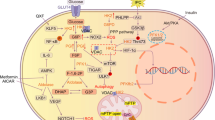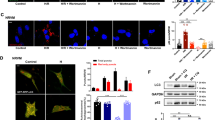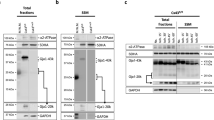Abstract
We tested the hypothesis that glycogen levels at the beginning of ischemia affect lactate production during ischemia and postischemic contractile function.
Isolated working rat hearts were perfused at physiological workload with bicarbonate buffer containing glucose (10 mmol/L). Hearts were subjected to four different preconditioning protocols, and cardiac function was assessed on reperfusion. Ischemic preconditioning was induced by either one cycle of 5 min ischemia followed by 5, 10, or 20 min of reperfusion (PC5/5, PC5/10, PC5/20), or three cycles of 5 min ischemia followed by 5 min of reperfusion (PC3 × 5/5). All hearts were subjected to 15 min total, global ischemia, followed by 30 min of reperfusion. We measured lactate release, timed the return of aortic flow, compared postischemic to preischemic power, and determined tissue metabolites at selected time points.
Compared with preischemic function, cardiac power during reperfusion improved in groups PC5/10 and PC5/20, but was not different from control in groups PC5/5 and PC3 × 5/5. There was no correlation between preischemic glycogen levels and recovery of function during reperfusion. There was also no correlation between glycogen breakdown (or resynthesis) and recovery of function. Lactate accumulation during ischemia was lowest in group PC5/20 and highest in the group with three cycles of preconditioning (PC3 × 5/5). Lactate release during reperfusion was significantly higher in the groups with low recovery of power than in the groups with high recovery of power.
In glucose-perfused rat heart recovery of function is independent from both pre- and postischemic myocardial glycogen content over a wide range of glycogen levels. The ability to utilize lactate during reperfusion is an indicator for postischemic return of contractile function.
Similar content being viewed by others
References
Murry C, Jennings R, Reimer K: Preconditioning with ischemia: A delay of lethal cell injury in ischemic myocardium. Circulation 74: 1124–1136, 1986
Reimer K, Vander Heide R, Jennings R: Ischemic preconditioning slows ischemic metabolism and limits myocardial infarct size. Ann NY Acad Sci 723: 99–115, 1994
Asimakis G, Inners-McBride K, Medellin G, Conti V: Ischemic preconditioning attenuates acidosis and postischemic dysfunction in isolated rat hearts. Am J Physiol 263: H887–H894, 1992
Wolfe C, Sievers R, Visseren F, Donnelly T: Loss of myocardial protection after preconditioning correlates with the time course of glycogen recovery within the preconditioned segment. Circulation 87: 881–892, 1993
Neely J, Grotyohann L: Role of glycolytic products in damage to myocardium: Dissociation of adenosine triphosphate levels and recovery of function of reperfused canine myocardium. Circ Res 55: 816–824, 1984
McElroy D, Walker W, Taegtmeyer H: Glycogen loading improves left ventricular function of the rabbit heart after hypothermic ischemic arrest. J Appl Cardiol 4: 455–465, 1989
Schneider C, Nguyêñ V, Taegtmeyer H: Feeding and fasting determine postischemic glucose utilization in isolated working rat hearts. Am J Physiol 260: H542–H548, 1991
Schneider C, Taegtmeyer H: Fasting in vivo delays myocardial cell damage after brief periods of ischemia in the isolated working rat heart. Circ Res 68: 1045–1050, 1991
Doenst T, Guthrie P, Chemnitius J-M, Zech R, Taegtmeyer H: Fasting, lactate, and insulin improve ischemia tolerance in rat heart: A comparison with ischemic preconditioning. Am J Physiol 270: H1607–H1615, 1996
Schaefer S, Carr L, Prussel E, Ramasamy R: Effects of glycogen depletion on ischemic injury in isolated rat hearts: Insights into preconditioning. Am J Physiol 268: H935–H944, 1995
Goodwin GW, Taegtmeyer H: Metabolic recovery of the isolated working rat heart after brief global ischemia. Am J Physiol 267: H462–H470, 1994
Lagerstrom C, Walker W, Taegtmeyer H: Failure of glycogen depletion to improve left ventricular function of the rabbit heart after hypothermic ischemic arrest. Circ Res 63: 81–86, 1988
Taegtmeyer H, Hems R, Krebs HA: Utilization of energy providing substrates in the isolated working rat heart. Biochem J 186: 701–711, 1980
Wollenberger A, Ristau O, Schoffa G: Eine einfache Technik der extrem schnellen Abkühlung größerer Gewebsstücke. Pflügers Arch ges Physiol Menschen Tiere 270: 399–412, 1960
Bergmeyer H: Methods of Enzymatic Analysis. 2 edn. Vol. 3. Verlag-Chemie International, Deerfield Beach, 1974, 2000
Walaas O, Walaas E: Effect of epinephrine on rat diaphragm. J Biol Chem 187: 769–776, 1950
Volovsek A, Subramanian R, Reboussin D: Effects of duration of ischemia during preconditioning on mechanical function, enzyme release and energy production in the isolated working rat heart. J Mol Cell Cardiol 24: 1011–1019, 1992
Cave A, Horrowitz G, Apstein C: Can ischemic preconditioning protect against hypoxia induced damage? Studies of contractile function in isolated perfused rat hearts. J Mol Cell Cardiol 26: 1471–1486, 1994
Fralix TA, Steenbergen C, London RE, Murphy E: Metabolic substrates can alter postischemic recovery in preconditioned ischemic heart. Am J Physiol 263: C17–C23, 1992
Jeremy R, Ambrosio G, Pike M, Jacobus W, Becker L: The functional recovery of post-ischemic myocardium requires glycolysis during early reperfusion. J Moll Cell Cardiol 25: 261–276, 1993
Braunwald E, Kloner R: The stunned myocardium: Prolonged, postischemic ventricular dysfunction. Circulation 66: 1146, 1982
Bolli R: Mechanism of myocardial ‘stunning’. Circulation 82: 723–738, 1990
Lawson C, Downey J: Preconditioning: State of the art myocardial protection. Cardiovasc Res 27: 542–550, 1993
Yang X, Arnoult S, Tsuchida A, Cope D, Thornton J, Daly J, Cohen M, Downey J: The protection of ischemic preconditioning can be reinstated in the rabbit heart after the initial protection has waned. Cardiovasc Res 27: 556–558, 1993
Liu Y, Downey J: Ischemic preconditioning protects against infarction in rat heart. Am J Physiol 263: H1107–H1112, 1992
Minhaz U, Koide S, Shohtsu A, Fujishima M, Nakazawa H: Perfusion delay causes unintentional ischemic preconditioning in isolated heart preparation. Basic Res Cardiol 90: 418–423, 1995
Garlick P, Radda G, Seeley P: Studies of acidosis in the ischemic heart by phosphorous NMR. Biochem J 184: 547–554, 1979
Allard M, Emanuel P, Russell J, Bishop S, Digerness S, PG A: Preischemic glycogen reduction or glycolytic inhibition improves postischemic recovery of hypertrophied rat heart. Am J Physiol 267: H66–H74, 1994
Cross H, Opie L, Radda G, Clarke K: Is a high glycogen beneficial or detrimental to the ischemic rat heart? A controversy resolved. Circ Res 78: 482–491, 1996
Asimakis G: Myocardial glycogen depletion cannot explain the cardioprotective effects of ischemic preconditioning in the rat heart. J Mol Cell Cardiol 28: 563–570, 1996
Goodwin G, Arteaga J, Taegtmeyer H: Glycogen turnover in the isolated working rat heart. J Biol Chem 270: 9234–9240, 1995
Clarke K, O'Connor AJ, Willis RJ: Temporal relation between energy metabolism and myocardial function during ischemia and reperfusion. Am J Physiol 253: H412–H421, 1987
Gevers W: Generation of protons by metabolic processes in heart cells. J Mol Cell Cardiol 9: 867, 1977
Lewandowski ED, White LT: Pyruvate dehydrogenase influences postischemic heart function. Circulation 91: 2071–2079, 1995
Russell RR, Taegtmeyer H: Pyruvate carboxylation prevents the decline in contractile function of rat hearts oxidizing acetoacetate. Am J Physiol 261: H756–H762, 1991
Gross G, Auchampach J: Role of ATP dependent potassium channels in myocardial ischemia. Cardiovasc Res 26: 1011–1026, 1992
Ytrehus K, Liu Y, Downey J: Preconditioning protects ischemic rabbit heart by protein kinase C activation. Am J Physiol 266: H1145–H1152, 1994
Morgan H, Henderson M, Regen D, Park C: Regulation of glucose uptake in muscle. I. The effects of insulin and anoxia on glucose transport and phosphorylation in the isolated perfused heart of normal rats. J Biol Chem 236: 253–261, 1961
Author information
Authors and Affiliations
Rights and permissions
About this article
Cite this article
Doenst, T., Guthrie, P.H. & Taegtmeyer, H. Ischemic preconditioning in rat heart: No correlation between glycogen content and return of function. Mol Cell Biochem 180, 153–161 (1998). https://doi.org/10.1023/A:1006863728395
Issue Date:
DOI: https://doi.org/10.1023/A:1006863728395




